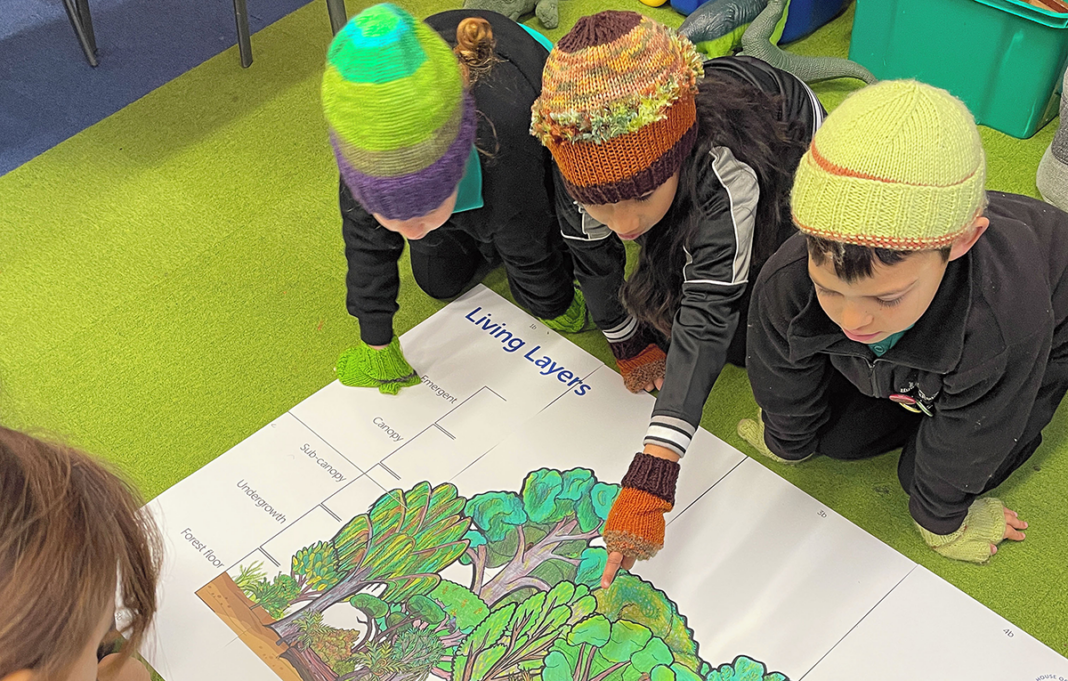Taking a mātauranga Māori approach to environmental issues, House of Science has launched an educational kit for primary school students.
The Forest Health kit (Te Ora o te Wao) captivated students during a recent trial at Tauranga’s Bethlehem School, teacher Andrea Acton confirms.
“We integrated it seamlessly across the curriculum, which inspired some of the [students’] best creative writing,” she says. “They also created posters full of newly learned facts and are enjoying this hands-on, science-based approach to learning.”
Activities encourage students to explore native forests through audio soundscapes, compare giant trees and conserve forests by dissecting seeds, studying tree growth and understanding diseases including kauri dieback.
The kits help young learners understand and protect New Zealand’s native ecosystems, inspiring them to become stewards of our environment, House of Science CEO and founder, Chris Duggan, explains.
“By age 10, most children have formed a strong impression [about] careers… if science hasn’t been part of their lives by then, the chance they’ll follow this pathway is slim. Empowering teachers to deliver engaging science lessons will ensure a workforce with the necessary skills to support the future of work.
“Careers in science, technology, engineering and mathematics are at the heart of many future workforce requirements and underpin the transition to a climate-resilient, sustainable, low-emission economy.”
House of Science is a charitable trust fostering scientific literacy and curiosity. Intended for children in years 1-8, the Forest Health kit is part of a wider library of resources covering topics such as electricity, climate change and soil.
Sponsorship by the BioHeritage National Science Challenge and the Freemasons Foundation will ensure most House of Science branches nationwide will have two copies of the kit.
“We have 20 House of Science branches serving more than 700 schools across most of the North Island and Christchurch,” Duggan adds. “Our kits have the power to reach more than 170,000 schoolchildren each year.”
The kit also includes Scion’s interactive app ‘E Heke e Heka!’ and the augmented reality tool ‘Mātaihia Te Heka!’ to help rangatahi identify threats such as myrtle rust. Scion’s Katerina Pihera-Ridge led development of the app after recognising a gap in accessible resources about myrtle rust, particularly in Te Reo Māori.
“We identified a need to make scientific knowledge more accessible to whānau, communities and rangatahi. This app offers an interactive learning experience that helps young people understand the impact of myrtle rust and empowers them in their roles as kaitiaki,” she says.
“[Inclusion in the kit makes] the app directly available to all House of Science member schools and kura, presenting myrtle rust science in Te Reo Māori and English and allowing young learners to engage with this environmental knowledge in a relevant and interactive way.”
The Forest Health kit marks a second collaboration between Scion and House of Science. In 2022, the two created ‘A Load of Rubbish’, a kit introducing students to resource management.


